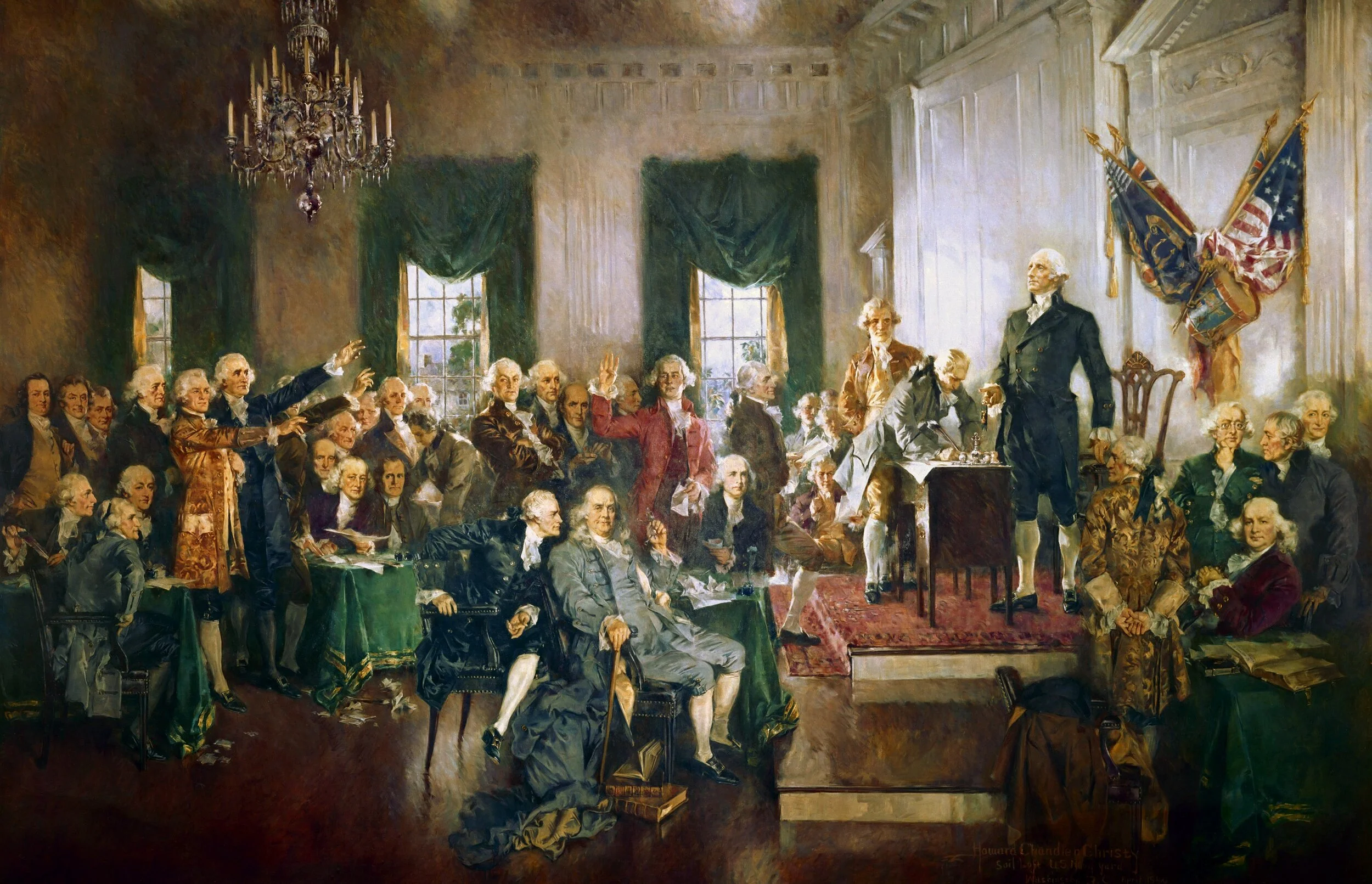The Khizr Khan Craziness
/American society crossed a tipping point of sorts on July 28, 2016. On that day a grouchy old man shouted nonsense into a television camera and the nation, or half the nation, applauded.
The grouchy old man was Khizr Khan, a Pakistani immigrant who was invited to speak at the Democratic National Convention. The Democrats thought Khan presented a winning impression because he was a muslim, an immigrant, and the father of a son killed while serving in the army. Donald Trump had declared repeatedly that muslims are bad and should be banned from the country. Here was a muslim who was patriotic, so the Democrats put him in front of the nation and switched him on. He bellowed at the camera:
“Donald Drumpf, you're asking Americans to trust you with their future. Let me ask you, have you even read the United States Constitution? I will gladly lend you my copy. In this document, look for the words "liberty" and "equal protection of law."
This made for good theatrics and got a reaction from the crowd and from the liberal media. A day or two later, Trump insulted Khan’s wife, which was tacky and unnecessary.
But few noticed that Khan’s taunt was inaccurate. He wasn’t wrong to question whether Trump had read the Constitution. After he was elected Trump misquoted the Constitution many times, and on one occasion in 2017 proved himself incapable of simply reading the words aloud for a recording. Trump went so far as to say the Constitution seemed “like a foreign language” to him.
Where Khan was wrong was his implication that “the words ‘liberty’ and ‘equal protection of law’” are prominent. The Constitution mentions Liberty exactly once – in the preamble. The words “equal protection of law” don’t appear in the Constitution anywhere.
No one bothered to point out that Khan was wrong about the facts. Instead, citizens rushed out to buy pocket versions of the Constitution like the one Khan had waved at the camera.
The preamble to the Constitution is noble and inspiring. It is in the preamble that “liberty” is named, along with “tranquility” and “justice” and . . . well, here’s the whole preamble:
We the People of the United States, in Order to form a more perfect Union, establish Justice, insure domestic Tranquility, provide for the common defence, promote the general Welfare, and secure the Blessings of Liberty to ourselves and our Posterity, do ordain and establish this Constitution for the United States of America.
That part is really very good. It expresses noble aspirations. Citizens ought to strive for those same goals today that the founders set down so long ago. But the preamble is only 52 words long. Almost anybody could memorize 52 words.
The rest of the Constitution contains mundane stipulations about how the government works. A lot of what it says isn’t even true anymore. Some of it is despicable to a modern mind. But the overarching character of the US Constitution is tediousness.
I agree with Khizr Khan that a fair and provident society is important. I agree that America is a good place to live — better than many other countries in the world today. But I disagree with his Constitutional fetishism. Waving a pocket copy of the Constitution in the air like a magic token is weird. It doesn’t matter so much if the words “domestic tranquility” are written down somewhere. What matters is whether domestic tranquility exists on the streets of America.
I agree with Khizr Kahn that people ought to read the US Constitution. They also ought to read the service contract on their smartphone, and they also ought to read a pamphlet from the American Heart Association about healthy eating. They ought to read a lot of things. They ought to read the Constitution once, if they can manage to get through it, so they can say they did. But once they’ve done that, they ought to move on to other worthwhile books and documents. Some interested people will loop back to the Constitution many times over the course of years. But reading the Constitution over and over, as if it were magical, is not something a good citizen should do.
Think:
Have you read the US Constitution? Have you read even a little bit of it?
Do you think the Constitution has magical powers to make America great? Or does America’s greatness depend on its citizens?









